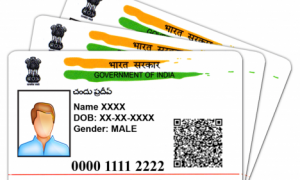The Group of Ministers (GoM) to decide on GST on health and life insurance premiums in its meeting on Saturday decided to exempt GST on premiums paid by individuals, other than senior citizens, for health insurance with coverage of up to Rs 5 lakh.
Term life insurance policies, and senior citizens’ health insurance premium are likely to be exempted from GST as most members of a state ministerial panel favoured cutting taxes to benefit the common man, an official said on Saturday.
Read More:- Bank of Maharashtra hikes lending rates for more than six months tenure by 5bps
The Group of Ministers (GoM) to decide on GST on health and life insurance premiums in its meeting on Saturday decided to exempt GST on premiums paid by individuals, other than senior citizens, for health insurance with coverage of up to Rs 5 lakh. However, 18 per cent GST will continue to be levied for health insurance cover of over Rs 5 lakh.
Separately, the GoM on GST rate rationalisation, too, met on Saturday and suggested that the GST Council rejig tax rates on a host of goods, including packaged drinking water, bicycles, exercise notebooks, luxury wrist watches, and shoes.
Read More: Jeevan Pramaan Certificate: How can one submit it offline and online
A final decision on GST on health and life insurance premiums, as well as rate rationalisation, is likely to the taken by the GST Council, chaired by Union Finance Minister and comprising state counterparts, in its meeting scheduled to take place next month.
“The rate rejig exercise will help the states and Centre to realise revenue gain of Rs 22,000 crore, which will help cover the revenue loss from reduction in GST rates for insurance premiums,” the official added.
The GoM on rate rationalisation proposed reducing GST on packaged drinking water of 20 litre and above to 5 per cent from 18 per cent. If the GoM’s recommendation is accepted by the GST council, GST on bicycles costing less than Rs 10,000 will be reduced to 5 per cent from 12 per cent.
Read More: Government Extends Deadline For Free Aadhaar Update: Full Details
Talking to reporters after the GoM meetings, Bihar Deputy Chief Minister Samrat Chaudhary, who is the convenor of the health and life insurance GoM, said “every GoM member wants to give relief to people. Special focus will be on senior citizens. We will submit a report to the Council. A final decision will be taken by the Council”.
Chaudhary, who is also a convenor of the GoM on rate rationalisation, said the panel will meet again before submitting its report to the Council. This was the first meeting of the 13-member GoM health and life insurance premiums, which was set up to last month to suggest tax rates.
The panel, which includes ministers from Uttar Pradesh, Rajasthan, West Bengal, Karnataka, Kerala, Andhra Pradesh, Goa, Gujarat, Meghalaya, Punjab, Tamil Nadu, and Telangana, has been mandated to submit its report to the GST Council by October- end.
In 2023-24, the Centre and states collected Rs 8,262.94 crore through GST on health insurance premium, while Rs 1,484.36 crore was collected on account of GST on health reinsurance premium.
Read More: 5 Days Working In Bank Likely From December 2024: Bank Schedule, Timing May Change | Check Details
The six-member Group of Ministers (GoM) on GST rate rationalisation includes Uttar Pradesh Finance Minister Suresh Kumar Khanna, Rajasthan Health Services Minister Gajendra Singh, Karnataka Revenue Minister Krishna Byre Gowda, West Bengal Finance Minister Chandrima Bhattacharya, and Kerala Finance Minister K N Balagopal.
To make good the revenue loss that will be incurred on account of lowering the tax rate on goods used by the common man, the GoM also discussed the possibility of raising tax rates on some items, including aerated water and beverages.
Currently, GST is a four-tier tax structure with slabs at 5, 12, 18, and 28 per cent.
Read More: Aadhaar card update for free: How to update information online without any charges
Under GST, essential items are either exempted or taxed at the lowest slab, while luxury and demerit items attract the highest slab. Luxury and sin goods attract cess on top of the highest 28 per cent slab.
The average GST rate has fallen below the revenue neutral rate of 15.3 per cent, prompting the need to start discussions on GST rate rationalisation.





































